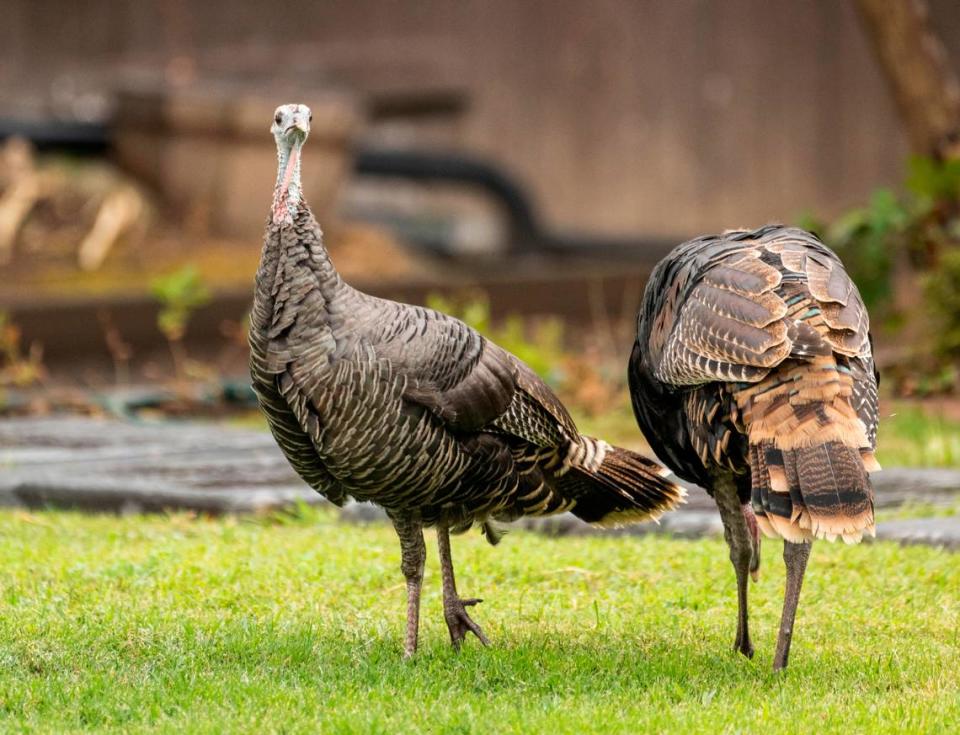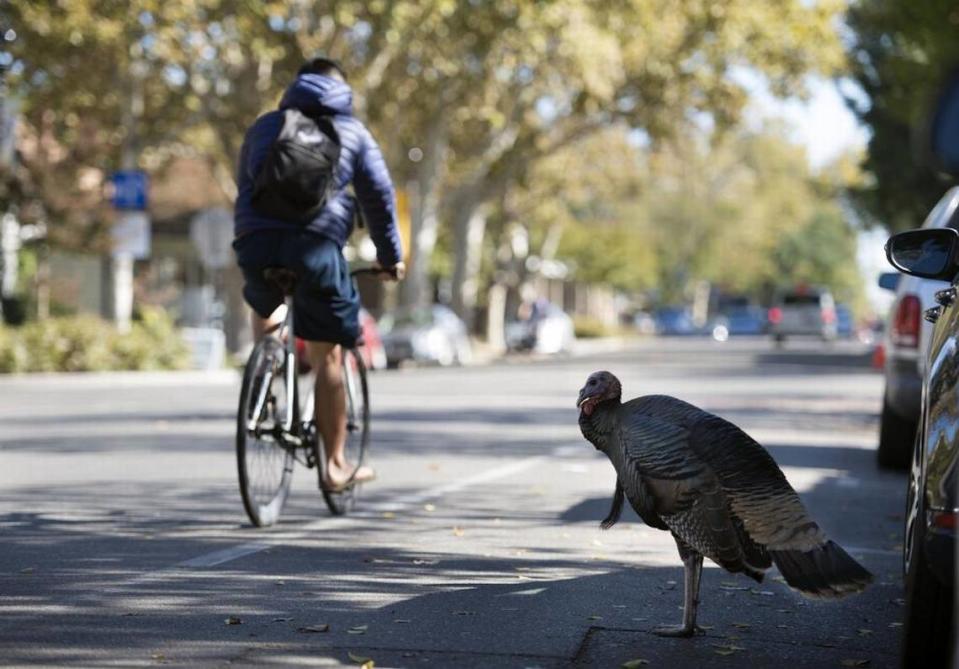Sacramento turkeys can get aggressive in the spring. Here’s how to keep them scared of you
As wild turkeys continue to breed through the spring months, humans could find themselves face-to-face with a hostile bird ready to peck and gobble.
The tension between these raptor-like creatures and Sacramento residents can be cut with a knife.
Live here long enough and you’re bound to have a story of your own.
The short-winged birds are known to disrupt traffic, block entryways, roost on roofs, break into homes and poop on cars — both in Sacramento’s urban and suburban areas. Unease stirred last year in an otherwise uneventful pocket of Arden Arcade when a mail carrier beat an enormous tom to death.
Like clockwork, the state receives an uptick of calls about confrontational birds this time of year.
Introduced to California in the 1800s as a hunting opportunity, the upland game bird can reach up to 20 pounds by adulthood, said senior environmental scientist Eric Kleinfelter with the California Department of Fish and Wildlife’s Northern Central. Between early March and mid-to-late April, male turkeys compete with one another to breed with the female birds by gobbling and strutting.
That’s when the problems start and the calls to environmentalists begin rolling in.

California has a burgeoning wild turkey population in almost every part of the state and “they lose their natural fear of people,” department spokesman Peter Tira told The Bee, when people feed them.
Wild turkeys are adaptable, and in many cases, prefer to live among humans where there are no predators or hunters and plenty of food and water. More humans and less access to natural food sources alter the typical behavior of wild turkeys, making them less fearful of humans.
If you haven’t learned to coexist with the turkeys, you should. They’re here to stay.
Sacramento Animal Care Services no longer traps or relocates healthy wildlife including wild turkeys, coyotes and deer, according to the city’s website. Killing them where it is safe and legal to do so during the spring turkey season, from March 28 to April 1, helps curb the growing population.
Is your home ready for wild turkeys?
Keep wild turkeys wild and do not feed them.
The California Department of Fish and Wildlife has more tips to keep wild turkeys from your home:
Clean the inside of your trash and recycling cans, and secure your containers
Don’t leave trash out overnight
Use motion-activated lights or alarms
Pick ripen fruit
Take down bird feeders
If you encounter a wild turkey

Turkeys can hurt you, and are more likely to be aggressive toward humans during their breeding season. They can damage landscaping and vehicles, too.
If you see the bird, keep your distance, according to the California Department of Fish and Wildlife.
If a turkey approaches you
Lift and wave your arms
Clap your hands and make noise
Do not chase them
If a turkey charges at you
Move quickly to a safe location and call the police
Call the nearest California Department of Fish and Wildlife office
What do you want to know about life in Sacramento? Ask our service journalism team your top-of-mind questions in the module below or email servicejournalists@sacbee.com.

